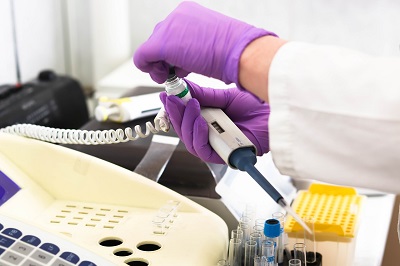In Vietnam, medical devices are classified into four categories (A, B, C, D) based on their level of risk. D-class medical devices are high-risk devices that pose a significant potential danger to patients or users if not properly controlled. These include devices like implantable devices, life-sustaining equipment, and devices used in critical or high-risk surgeries.
D-Class Medical Device Registration Process with Vietnam MOH
To register a D-class medical device with the Vietnam Ministry of Health (MOH), manufacturers or importers must follow a detailed and strict procedure. Here's an overview of the process:
1. Confirm Device Classification
- Classification: Ensure that the device is classified as D-class. This is typically determined based on the device’s intended use, level of risk, and the potential impact on patient safety.
2. Appoint a Local Authorized Representative
- Foreign manufacturers are required to appoint a local authorized representative in Vietnam to act on their behalf. This representative will submit the application to the Ministry of Health and liaise with the authorities.
3. Prepare the Required Documents
The following documents must be compiled as part of the registration application:
- Application Form: Completed registration form provided by the Vietnam MOH.
- Product Technical Dossier: This includes detailed information about the device, including:
- Device description
- Intended use and clinical indications
- Manufacturing process and quality control procedures
- Risk analysis and management (based on ISO 14971)
- Clinical evidence/data (if required)
- Labeling and instructions for use (in Vietnamese)
- Good Manufacturing Practice (GMP) Certificate: A valid GMP certificate is required for the manufacturer to show compliance with international standards.
- Certificate of Free Sale (CFS): Issued by the regulatory authority in the country of origin, proving the device is legally sold in the home country.
- Quality Management System (QMS) Certificates: ISO 13485 or equivalent certification is necessary to demonstrate quality management standards.
- Clinical Trial Data: If applicable, clinical data to demonstrate safety and efficacy.
- Risk Assessment Report: A document assessing potential risks associated with the device and how they are mitigated.
4. Submit the Registration Dossier
- The complete registration dossier is submitted to the Medical Device Administration (MDA) under the Vietnam Ministry of Health. This submission can be done by your local authorized representative.
5. Review and Evaluation by MOH
- The Vietnam MOH will review the dossier for completeness and compliance. Given that D-class devices are high-risk, this process is more detailed and takes longer.
- The MOH may request additional information or clarification during the review process.
- The regulatory authorities may also perform inspections of the manufacturing site or request post-market surveillance data.
6. Registration Approval
- If the MOH finds the submission satisfactory, they will grant a Medical Device Registration Certificate for the D-class device. This approval will allow the device to be marketed and sold in Vietnam.
7. Post-Registration Requirements
- Once the device is registered, manufacturers and importers must comply with post-market surveillance, reporting of adverse events, and ensuring continuous product quality.
- The Vietnam MOH may also conduct periodic audits or inspections of the device in the market.
8. Renewal of Registration
- Medical device registrations in Vietnam are valid for 5 years. Before the registration expires, you must apply for renewal by submitting updated information and documentation.
Key Considerations
- Clinical Trials: D-class devices may require clinical trial data to demonstrate safety and efficacy, particularly if the device is new or innovative.
- Compliance with International Standards: Devices must comply with international standards (e.g., ISO 13485, IEC 60601) and demonstrate that they meet safety and performance requirements.
- Local Representation: The local authorized representative must have sufficient knowledge of the regulatory environment and act as the point of contact with the MOH.
This registration process can take several months, so it's essential to plan ahead and ensure all required documentation is accurate and complete. Working with an experienced local regulatory consultant can help streamline the process.

Contact Us:
Whatsapp or Wechat:+86 15816864648;email address:hito.lin@grzan.cn
.png)
.jpg)


